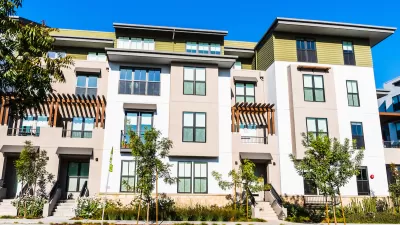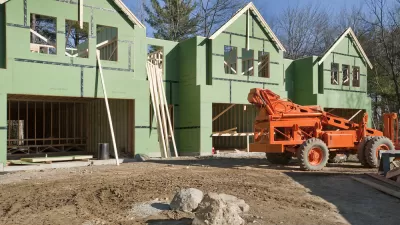An acquaintance of mine is trying to decide whether to move to Los Angeles or New York. Having spent most of her life in the Northeast, New York is a familiar city where she has good friends and job connections. However, she can’t help but feel the draw of the West Coast, and on a recent visit to Los Angeles, she was rather keen on settling down in Southern California, especially when she was comparing the rents in L.A. to those in New York. While rents in New York are increasingly stratospheric, L.A.’s are just exorbitantly high.
An acquaintance of mine is trying to decide whether to move to Los Angeles or New York. Having spent most of her life in the Northeast, New York is a familiar city where she has good friends and job connections. However, she can't help but feel the draw of the West Coast, and on a recent visit to Los Angeles, she was rather keen on settling down in Southern California, especially when she was comparing the rents in L.A. to those in New York. While rents in New York are increasingly stratospheric, L.A.'s are just exorbitantly high.
However, several friends pointed out that since most people in Los Angeles consider a car a necessity, she would need to factor that into her cost of living. Once she did, she realized that living in Los Angeles would actually be more expensive than living in New York. Certainly, it is possible to live in Los Angeles without a car (and many do, including myself). However, as someone who's also lived in a very transit-friendly city (Hong Kong), I'll also be the first to admit living in L.A. without a car is not easy. In New York, the question is sometimes even asked in reverse – why would you want to deal with the hassle of owning a car?
All this got me thinking – how much are the higher rents in New York connected to the fact that you don't need to pay for a private vehicle? And are L.A.'s property owners and landlords losing out on income potential because they and their tenants feel the need to own cars? If so, there seems like a good economic argument for convincing property owners to pay for more transit.
Of course, the idea of financing transit improvements using tax increment financing on property within easy access of improved transit service isn't new. Los Angeles tried this itself when the first stretches of the city's subway were built – establishing benefit assessment districts in and around its downtown. However, these were limited to commercial properties, which stunted their potential. Carefully applied to residential properties, either through property taxes or rents, this concept might be able to capture some of the value that likely is created when investments in transit are made.

Maui's Vacation Rental Debate Turns Ugly
Verbal attacks, misinformation campaigns and fistfights plague a high-stakes debate to convert thousands of vacation rentals into long-term housing.

Planetizen Federal Action Tracker
A weekly monitor of how Trump’s orders and actions are impacting planners and planning in America.

In Urban Planning, AI Prompting Could be the New Design Thinking
Creativity has long been key to great urban design. What if we see AI as our new creative partner?

King County Supportive Housing Program Offers Hope for Unhoused Residents
The county is taking a ‘Housing First’ approach that prioritizes getting people into housing, then offering wraparound supportive services.

Researchers Use AI to Get Clearer Picture of US Housing
Analysts are using artificial intelligence to supercharge their research by allowing them to comb through data faster. Though these AI tools can be error prone, they save time and housing researchers are optimistic about the future.

Making Shared Micromobility More Inclusive
Cities and shared mobility system operators can do more to include people with disabilities in planning and operations, per a new report.
Urban Design for Planners 1: Software Tools
This six-course series explores essential urban design concepts using open source software and equips planners with the tools they need to participate fully in the urban design process.
Planning for Universal Design
Learn the tools for implementing Universal Design in planning regulations.
planning NEXT
Appalachian Highlands Housing Partners
Mpact (founded as Rail~Volution)
City of Camden Redevelopment Agency
City of Astoria
City of Portland
City of Laramie






























